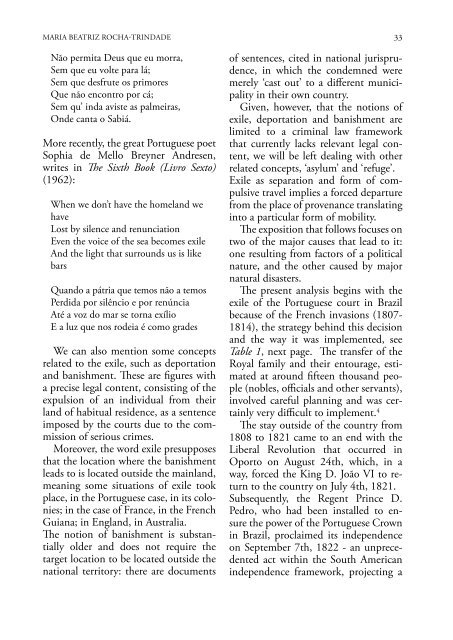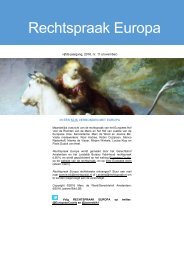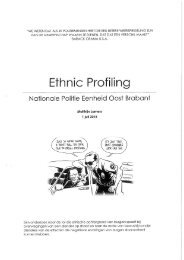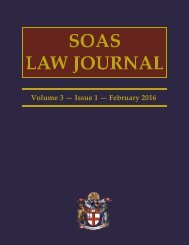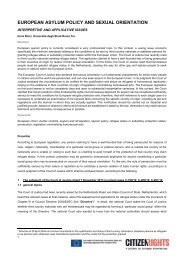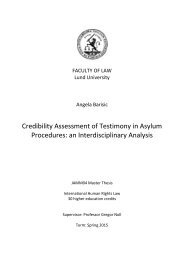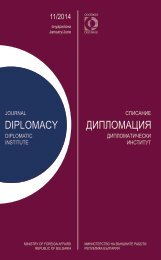AEMI
AEMI-2016-web
AEMI-2016-web
Create successful ePaper yourself
Turn your PDF publications into a flip-book with our unique Google optimized e-Paper software.
MARIA BEATRIZ ROCHA-TRINDADE<br />
Não permita Deus que eu morra,<br />
Sem que eu volte para lá;<br />
Sem que desfrute os primores<br />
Que não encontro por cá;<br />
Sem qu’ inda aviste as palmeiras,<br />
Onde canta o Sabiá.<br />
More recently, the great Portuguese poet<br />
Sophia de Mello Breyner Andresen,<br />
writes in The Sixth Book (Livro Sexto)<br />
(1962):<br />
When we don’t have the homeland we<br />
have<br />
Lost by silence and renunciation<br />
Even the voice of the sea becomes exile<br />
And the light that surrounds us is like<br />
bars<br />
Quando a pátria que temos não a temos<br />
Perdida por silêncio e por renúncia<br />
Até a voz do mar se torna exílio<br />
E a luz que nos rodeia é como grades<br />
We can also mention some concepts<br />
related to the exile, such as deportation<br />
and banishment. These are figures with<br />
a precise legal content, consisting of the<br />
expulsion of an individual from their<br />
land of habitual residence, as a sentence<br />
imposed by the courts due to the commission<br />
of serious crimes.<br />
Moreover, the word exile presupposes<br />
that the location where the banishment<br />
leads to is located outside the mainland,<br />
meaning some situations of exile took<br />
place, in the Portuguese case, in its colonies;<br />
in the case of France, in the French<br />
Guiana; in England, in Australia.<br />
The notion of banishment is substantially<br />
older and does not require the<br />
target location to be located outside the<br />
national territory: there are documents<br />
33<br />
of sentences, cited in national jurisprudence,<br />
in which the condemned were<br />
merely ‘cast out’ to a different municipality<br />
in their own country.<br />
Given, however, that the notions of<br />
exile, deportation and banishment are<br />
limited to a criminal law framework<br />
that currently lacks relevant legal content,<br />
we will be left dealing with other<br />
related concepts, ‘asylum’ and ‘refuge’.<br />
Exile as separation and form of compulsive<br />
travel implies a forced departure<br />
from the place of provenance translating<br />
into a particular form of mobility.<br />
The exposition that follows focuses on<br />
two of the major causes that lead to it:<br />
one resulting from factors of a political<br />
nature, and the other caused by major<br />
natural disasters.<br />
The present analysis begins with the<br />
exile of the Portuguese court in Brazil<br />
because of the French invasions (1807-<br />
1814), the strategy behind this decision<br />
and the way it was implemented, see<br />
Table 1, next page. The transfer of the<br />
Royal family and their entourage, estimated<br />
at around fifteen thousand people<br />
(nobles, officials and other servants),<br />
involved careful planning and was certainly<br />
very difficult to implement. 4<br />
The stay outside of the country from<br />
1808 to 1821 came to an end with the<br />
Liberal Revolution that occurred in<br />
Oporto on August 24th, which, in a<br />
way, forced the King D. João VI to return<br />
to the country on July 4th, 1821.<br />
Subsequently, the Regent Prince D.<br />
Pedro, who had been installed to ensure<br />
the power of the Portuguese Crown<br />
in Brazil, proclaimed its independence<br />
on September 7th, 1822 - an unprecedented<br />
act within the South American<br />
independence framework, projecting a


